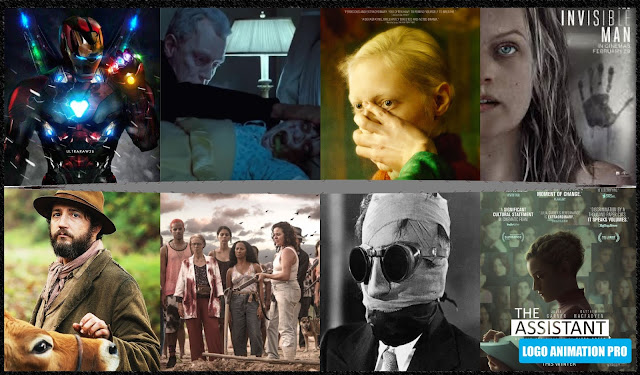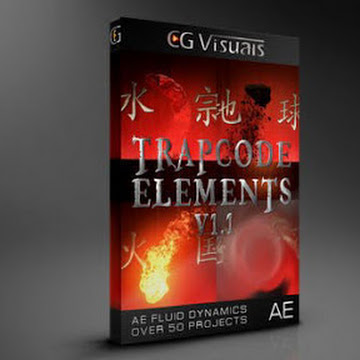BEST MOVIES IN 2020
BEST MOVIES IN 2020
 |
| BEST MOVIES IN 2020 |
First Cow
Not many chefs are as mindful of the rhythms of nature—human and something else—as Kelly Reichardt, and the producer's considerable aptitude at bringing out a feeling of the spot thought, feeling and inspiration is on stunning showcase in First Cow. Adjusted from Jonathan Raymond's epic The Half-Life, Reichardt's moderate copy dramatization centers around a roaming 1820s gourmet specialist named Cookie (John Magaro) who, in the wake of showing up at a Pacific Northwest post, becomes a close acquaintance with and starts a new business with on-the-run Chinese maverick King Lu (Orion Lee), preparing and selling well known "sleek cakes" made with milk taken from a dairy cow claimed by rich Chief Factor (Toby Jones). Treat and King Lu's endeavor to transcend their financial station through a criminal plan, and the potential fiasco that anticipates them, is the emotional heart of this serene semi spine chiller, which—inundated with aromatic faces, signals, and customs—gives a downplayed impression of the powers pushing its characters, and the spearheading country, forward. Confining characters in the midst of timberland greenery or through contracting lodge windows, and setting its activity to the peaceful hints of its country condition—snapping twigs, twittering feathered creatures, running water, human breath—it's a compassionate vision of significant male kinship and dangerous industrialist venture.The Wild Goose Lake
Likewise with his earlier Black Coal, Thin Ice, Chinese chief Diao Yinan's The Wild Goose Lake has a wound force that intensifies its sentimental capitulation to the inevitable. Diao's neo-noir follows a hoodlum named Zhou Zenong (Hu Ge) who, in the wake of slaughtering a cop in a criminal undertaking gone astray, accomplices with a "washing wonder" prostitute named Lu Aiai (Gwei Lun Mei) so as to rejoin with his irritated spouse Yang Shujun (Wan Qian), all so she may gather the award on his head. Overflowing with treacheries, manhunts, and shootouts, the auteur's account is continually taking sharp, sudden turns and the equivalent is valid for his stunning bearing, which uncovers concealed figures, and winds, by means of exact camerawork and expressionistic twists that are hitched to a practical portrayal of downpour drenched Wuhan and its rebellious lakeside networks. Pursued by police commander Liu (Liao Fan), Diao's heroes are occupied with a destructive game that is played peacefully in light of the fact that they all characteristically know the guidelines, and their feeling of direction is reverberated by the movie itself, which organizes its black market clashes with supporting exactness. In addition, it flaunts 2020's most grimly creative utilization of an umbrella.
The Assistant
Kitty Green's The Assistant is the primary extraordinary #MeToo film, a searing gander at the everyday manners by which sexual orientation imbalanced maltreatment and injustice are incorporated with work environment frameworks. In spite of the fact that you won't hear Harvey Weinstein's name expressed once, his quality is substantial all through this clinical anecdote about Jane (a sterling Julia Garner), whose position as the low lady on the command hierarchy at a film creation organization requires suffering abuse of both an unobtrusive and clear sort. In the case of being chastised by her chief (who's just heard in quieted calls), or sharing calm, pointed looks with her female associates, Jane is a casualty of both exploitative men and, similarly as harshly, a degenerate institutional structure that propagates itself by encouraging merciless mercilessness and estranging quietness. Embodied by Jane's gathering with a cold-bloodedly figuring HR rep (Succession's Matthew Macfadyen), whose dangers are for the most part they all the more frightening for being both suggested and consistent, it's a representation of sexism's numerous deceptive structures.
Gretel and Hansel
Oz Perkins is a frightfulness lyricist focused on anguish and female office, and both factor vigorously into his environmental reconsidering of the great fantasy. In a wide-open assailed by an obscure plague, high school Gretel (It's Sophia Lillis) won't function as an old dreadful man's maid and is in this way tossed out by her mom, compelled to take her young sibling Hansel (Sam Leakey) on an excursion through the dull woods to a religious circle she has no enthusiasm for joining. Assailed by hunger, the two happen upon the home of a witch (Alice Krige), whose dining experiences are as mouth-watering as her enchantment exercises for Gretel are at the same time enabling and alarming. Perkins adheres generally near his source material's account while in any case reshaping it into an anecdote about female force and self-governance, and the potential expense of gaining both. Soaked in imperishable, insidious symbolism (brimming with triangular agnostic images, pointy-hatted outlines, and nighttime fog), and flaunting a trippiness that turns out to be entertainingly strict at a certain point, Gretel and Hansel do magic that feels on the double antiquated and new.
Saint Maud
There is no wrath known to man like a strict fanatic hated, as exhibited by essayist/executive Rose Glass' component debut. Young hospice nurture named Maud (Morfydd Clark) comes to accept that her strategic God—with whom she talks, and feels inside her body—is to spare the spirit of her at death's door new patient, popular artist Amanda (Jennifer Ehle). What starts as an honorable endeavor to share devout conviction and give solace to the debilitated quickly turns unsettled, as Maud is controlled by lunacy impenetrable to reason, and enflamed by both the insults she gets from Amanda and others, and her own human failings. The hallowed and the profane are tied up inside this young lady, whom Clark typifies with a startling power that is coordinated by Glass' disrupting style, set apart by upside-down symbolism and throbbing, smashing soundtrack strings. A horrorshow about the connection among devoutness and madness, it's a nerve-shaking spine chiller that serves as a sharp study, coming full circle with a flammable last alter that won't before long be overlooked.
Bacurau
In the anecdotal upper east Brazilian town of Bacurau, occupants are astounded to find that their home has vanished from all GPS maps, and their cell administration has stopped. More bizarre despite everything is the 1950s-style UFO zooming around the sky—may be the result of the psychotropic medications the townsfolk have ingested? Or on the other hand, is it an instrument of other vile powers getting ready to strike? Cooperating with his previous creation fashioner Juliano Dornelles, chief Kleber Mendonça Filho (Neighboring Sounds, Aquarius) conveys a purposeful anecdote of passed out oddness with Bacurau, which rapidly has local people participating in a sink or swim fight with a couple of interloping São Paulo bikers and a gathering of deadly Western visitors (drove by an amusingly impossible to miss Udo Kier) who've ventured out to South America to participate in a variety of The Most Dangerous Game. Elaborately obligated to both the Westerns of Sergio Leone and the spine chillers of John Carpenter, but then instilled with an out-there soul all its own, Filho and Dornelles' film takes a gonzo surgical tool to geopolitical elements.
Never Rarely Sometimes Always
Putting a strong face on a hostile social point, Never Rarely Sometimes Always recounts to the account of pregnant Pennsylvania 17-year-old Autumn (Sidney Flanigan), who with her faithful cousin Skylar (Talia Ryder) close by, goes to New York to secure a premature birth. As imagined by author/chief Eliza Hittman (Beach Rats), Autumn's pregnant condition prompts a nerve-racking trial of awkward specialist visits, money related tensions, and relentless outrages endured on account of men, be it explicitly badgering schoolmates, her alcoholic and merciless dad (Ryan Eggold), or a kid (Théodore Pellerin) she and Skylar meet on the transport to Manhattan. Compelled to explore a high and mighty world that regards them as dispensable sexual toys, slanders them as prostitutes when they endeavor to satisfy that job, and afterward impedes their longing for the organization—and autonomy—every step of the way, Autumn's adventure is even more shocking for being so conventional. Doused peacefully that passes on the depression of its courageous woman, and says a lot about the implied comprehension and empathy shared by ladies, it's a calming investigation of steadiness notwithstanding individual, and foundational, persecution.
Beanpole
Shows don't come a lot more hopeless than Beanpole, executive Kantemir Balagov's twisting tale about the harm brought about by war, and the exceedingly significant expense of endurance. In 1945 Leningrad despite everything recuperating from the finish of WWII, lean Iya (Viktoria Miroshnichenko), otherwise known as "Beanpole," functions as an attendant despite the fact that her military help has left her with a condition in which she turns out to be incidentally solidified. Iya thinks about Pashka (Timofey Glazkov), the youthful child of her forefronts companion Masha (Vasilisa Perelygina), and when Masha seems to recover her kid—just to learn of an inconceivable disaster—their relationship clasps under the heaviness of misery, blame, lament, hatred and need. Merciless coercion before long ends up being Masha's methods for adapting to misfortune, however, recuperating is hard to come by right now. Shot in, on the other hand, tremulous and made handheld, chief Balagov's long happens a premium on close-ups, the better to pass on the bewildering anguish of his subjects, who are as crushed as their condition. Overpoweringly ruined and moving, it's a dream of a deadening individual, and national, PTSD—and, eventually, of ladies banding together to manufacture another future.
Young Ahmed
Jean-Pierre and Luc Dardenne look into the dull heart of strict zeal in Young Ahmed, a show that is all the more chilling for proffering no simple answers. When the movie producers' story starts, urban 13-year-old Ahmed (newcomer Idir Ben Addi) has just been taught by a jihad-empowering imam (Othmane Moumen). No measure of grown-up counter-programming can influence the child, and when he assaults a female instructor (Myriem Akheddiou) for her innovator Islamic lessons, he ends up in an adolescent confinement place and, at that point, at a homestead where the expressions of love of Louise (Victoria Black) confuse his perspective. With a stony face and dim eyes that veil his inside contemplations, Ahmed is a chilling hero in thrall to an inflexible belief system that lectures brutality against all apostates. Their handheld camerawork trailing him as he sets out on his disastrous ascent and-fall venture, the executives' style is as officially thorough and suggestive as could be, catching the resolute idea of fanaticism, just as the trouble of relaxing radicalism's horrendous hold on people's souls and brains.
The Invisible Man
Gaslighting gets the beast film treatment in The Invisible Man, a 21st-century take on Universal's exemplary concealed apparition. Helmed with the energetic threat by Leigh Whannell, whose camerawork and organizations continually bother unobtrusive activity toward the edges of the edge, this smooth sort exertion discovers Elisabeth Moss attempting to persuade anybody who'll listen that she's not insane, and truly is being pursued by her as far as anyone knows dead harsh beau. Since said predator isn't noticeable to the human eye, be that as it may, that is not a simple assignment. Hot-button issues rise normally out of this essential reason, in this way letting Whannell evade plain lecturing for coordinating a progression of finely tuned set pieces in which deadly peril may appear at any minute, from any heading. Keeping away from superfluous redirections or stressed governmental issues, the movie producer streamlines his story into a fierce round of feline and mouse, with Moss ordering the spotlight as a lady tormented both truly and mentally, and resolved to retaliate against her sexist exploitation.




No comments
Note
- Do not post spam comments - they will be removed upon review
- Avoid including website URL in the comment